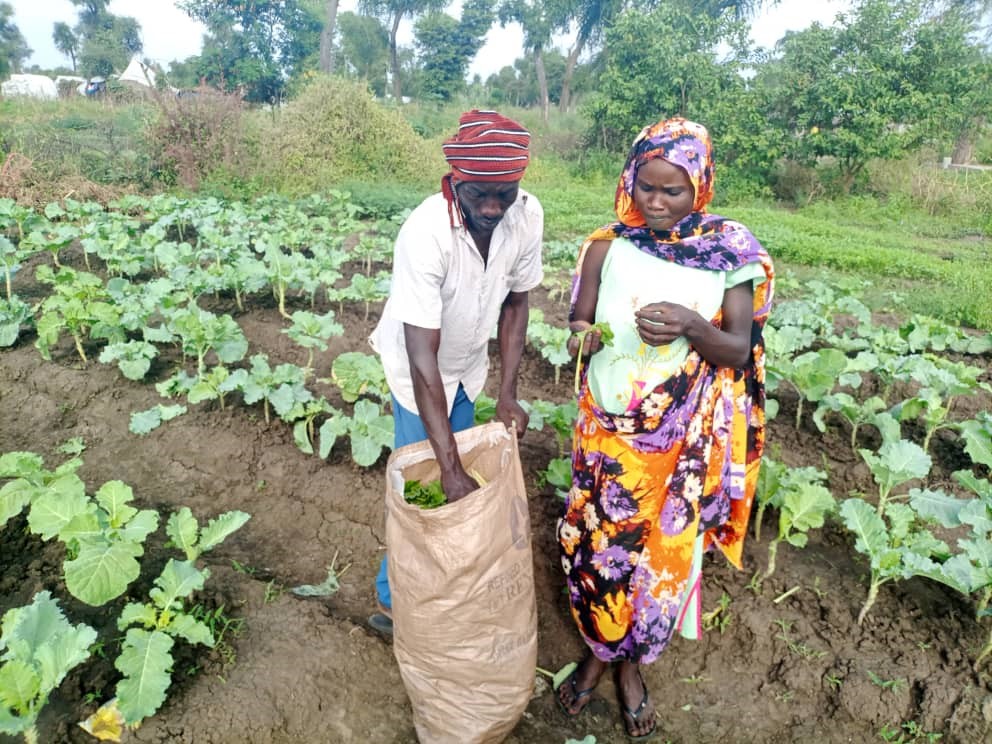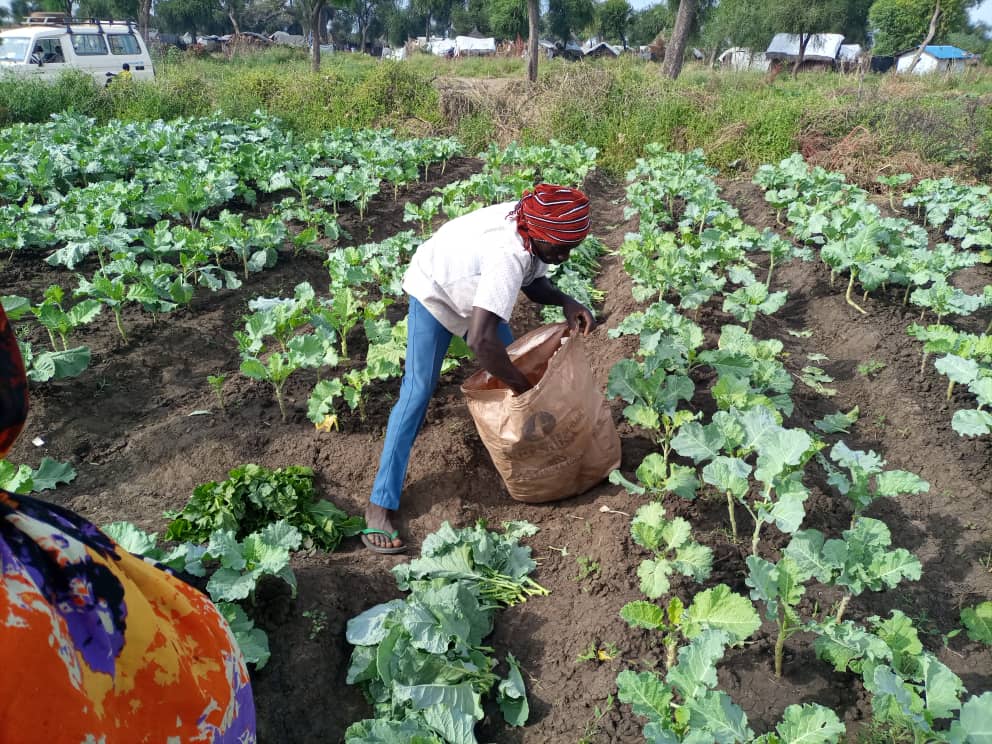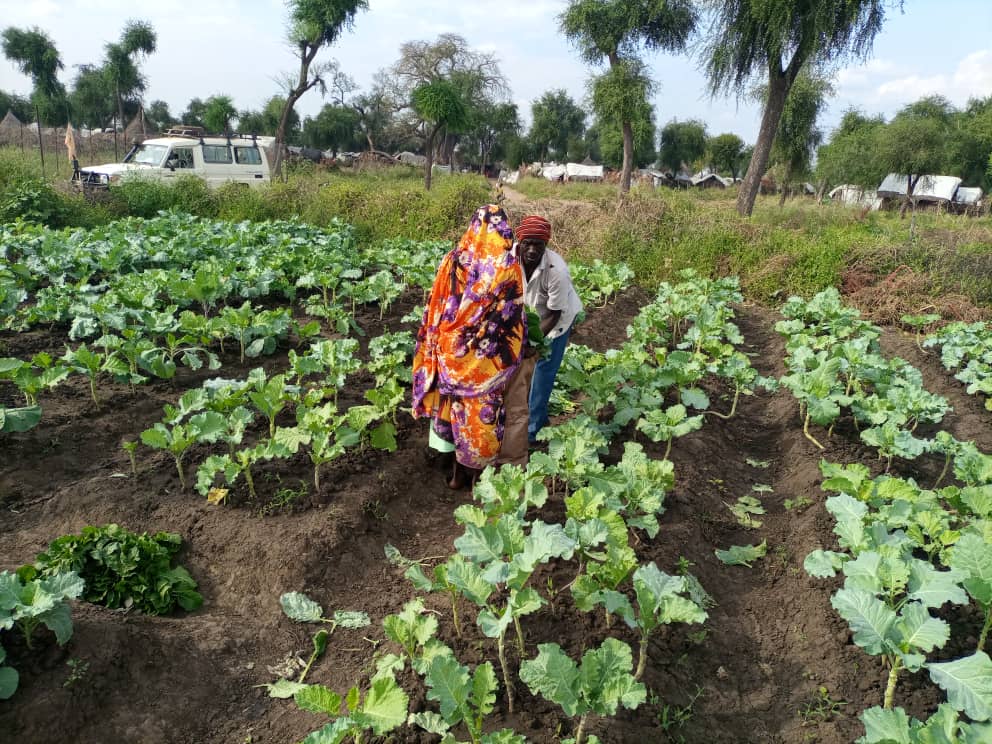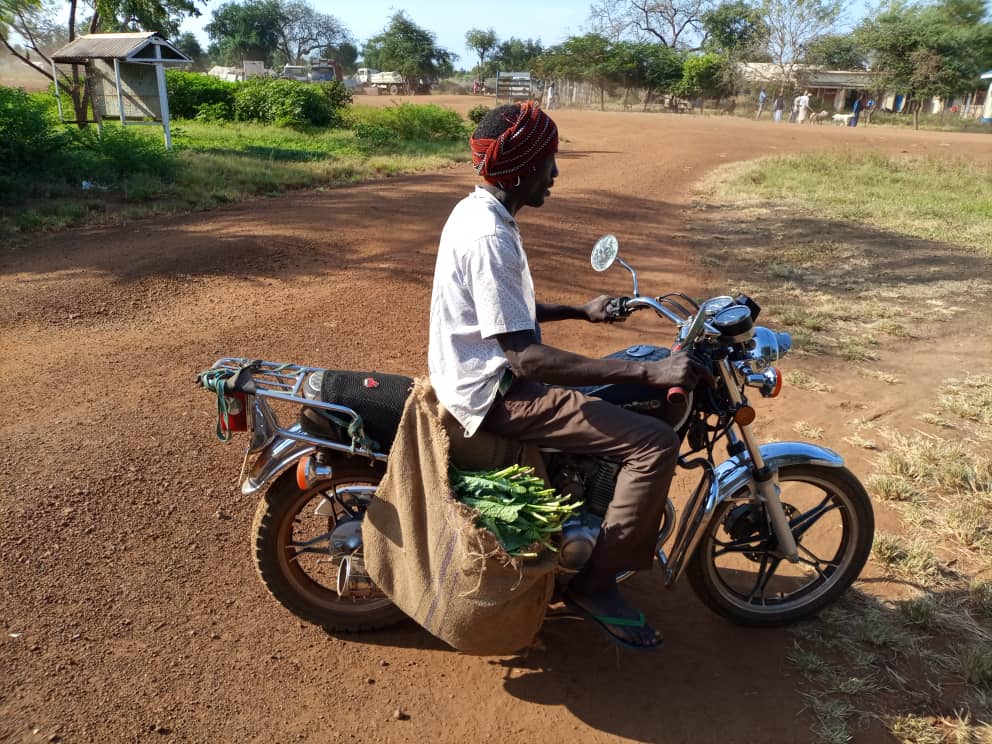Growing fruits and vegetables from seeds can be a magical experience. Seeing those first tiny shoots of green creep out from the wet cultivated soil beneath is an exciting representation of the power of nature. When it is your own hands that put the seed in the soil in the first place, it can also be a joyous representation of hard work and determination.
Cultivating plants that bear fruits and vegetables in a place known for its scarcity of resources is only more impressive. This is exactly what Hassan has achieved over the last two years. Through training, determination and hard work, Hassan has cultivated a flourishing vegetable plot full of ripe and nutritious foods for him and his family at the Yousif Batil Refugee camp in Maban County, South Sudan.
Their time at the camp has not always been so positive. Hassan and his family have lived at the camp since fleeing the armed conflict in Sudan’s Blue Nile Region. On arriving in Maban, they survived on monthly food rations which were sometimes not enough to sustain the dietary needs of a family of eight.
“When my family and I fled Sudan in search of safety, we did not know what our future would look like and this bothered me as the head of the family” Hassan says.
Life at the camp was extremely difficult with limited resources to support his children’s needs. “It pained my heart seeing my children wearing old, worn out and torn clothes.”
Hassan and his family’s circumstances changed radically in 2020. Working with community leaders at the camp, Relief International set up a horticultural production program with support from UNHCR for those interested in learning to grow their own food. Hassan jumped at this opportunity, and was one of the first to be registered.
Along with 260 people from this camp, and three other refugee camps in the region, Hassan took part in the horticultural program which gave participants hands-on and practical training on how to grow fruits and vegetables. The training, which lasted 3 weeks, focused on planting, crop spacing, weeding, pest and disease control, harvesting and post-harvest handling.
As part of the Relief International program, each participant was provided with horticultural tools, vegetable seeds for tomatoes, eggplants, kale, okra, green pepper, onions, and cowpeas, as well as a section of farming space with easy access to water and irrigation.
Using the knowledge, seeds, tools and land, Hassan was able to cultivate large quantities of fruits and vegetables for his family.
The impact has been huge.
Hassan no longer has any trouble feeding his family, and is now able to grow so much produce that he can sell the excess at local markets and use the money he earns to support his family’s expenses. Now he can afford to buy decent clothes and shoes for his children, as well as meat and other food items to improve the family’s dietary needs.
With his savings from selling the fruits and vegetables, he bought 14 sheep and 10 goats, and was also able to purchase a motorbike that facilitates the transportation of his vegetables to the different markets
“I have been equipped to provide for my family, ensure their wellbeing and restore their dignity. This gives me so much joy and peace.”
In the process, Hassan has developed a passion for growing these vegetables, tending and caring for each and every plant. This passion has been passed on to his wife and children who are keen to help grow and sustain the plants. “My wife is interested in horticulture too, and helps out in the garden, weeding, digging and harvesting the crops.” says Hassan.
Hassan’s vegetable plot has become so successful that he now employees four other people to help him work the land; tilling and rehabilitating his vegetable nursery beds. “It gives me joy to know that through my vegetable business, my employees are able to provide support and take care of their families as well.”
Hassan does not want to stop here though. One day he hopes to take his knowledge, skills, tools and, most of all, his passion for horticulture, back to Sudan to train the community there as well.



